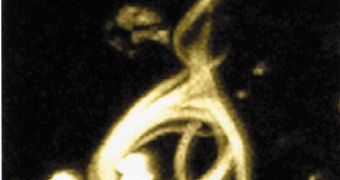Three genes believed to be responsible for the development of a dangerous, neurodegenerative disorder called progressive supranuclear palsy (PSP) have recently been identified by an international group.
The investigators, which were led by researchers at the Mayo Clinic Florida campus, say that the three genes are susceptible to influences that may lead to the onset of this rare disease. Symptoms caused by PSP are very similar to those of Parkinson's.
Unfortunately, medication used for Parkinson's is ineffective against PSP. The condition leads to the gradual deterioration and death of certain areas of the human brain. Experts describe is as a tauopathy.
Tauopathies are neurodegenerative diseases that experts believe are caused by the pathological aggregation, or accumulation, of large amounts of the tau protein in the brain. This phenomenon happens in Alzheimer's and Parkinson's as well.
In their new report, which appears in the June 19 online issue of the esteemed journal Nature Genetics, the researchers explain that the new discoveries could potentially be used to develop new therapies against a large number of tauopathies.
“These are promising gene candidates that may help us understand and potentially treat PSP,” explains Mayo Clinic neuropathologist Dennis W. Dickson, MD, who is the co-lead author of the new study.
“While these findings are surprisingly robust, we are still at the very earliest stages of this work. These are excellent candidate genes, but we have to make sure they are true susceptibility genes,” he adds.
The investigator explains that the new findings are the result of a massive collaboration between experts in the United States and Europe, which was made possible by the involvement of more than 29 research institutions and universities.
Together, the experts found three single nucleotide polymorphisms (SNP) that may be considered genetic candidates for the development of PSP. “We don't know for sure that these SNP are precisely at these gene locations,” the expert adds.
“If they are real PSP susceptibility genes, we can then zero in on variants that have an impact on the disease, which might then be exploited therapeutically,” Dr. Dickson explains.
“While we are a long way from any new treatment, this new research is exciting for researchers who are dedicated to understanding this tragic disorder,” he concludes, quoted by e! Science News.

 14 DAY TRIAL //
14 DAY TRIAL //